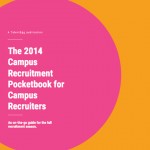At the end of last week, PwC released a comprehensive study on how millennials (those born between 1980 and 1995, for the purposes of the study – also known as Generation Y) view and impact the workplace.
The firm says NextGen is the largest global generational study ever conducted, featuring the results of more than 40,000 responses from millennials and non-millennials alike in 18 global territories.
The story behind the study itself is also quite fascinating:
“A decade after the first millennials entered the halls of PwC, PwC firms began to notice that the youngest generation of professionals were leaving PwC in growing numbers after just a few years. Additionally, and perhaps even more alarmingly, a significant majority of them appeared to lack interest in the traditional professional services career path, one that required an intense work commitment early in their career in exchange for the chance to make partner later on.”
Obviously, this would be a huge problem for any organization, but PwC was facing a particularly unique challenge in that, by 2016, almost 80% of the workforce in PwC firms around the world will be millennials.
So, PwC decided to tackle the issue head on and undertake this study to better understand exactly what millennial employees want in terms of work environment and their careers.
Overall, the results of the study show that while millennials want greater flexibility, work/life balance and global opportunities, they’re actually not so different from other generations after all.
“The millennial generation is already transforming long-held management practices within the workplace,” said Dennis Finn, Vice Chair and Global Human Capital Leader at PwC. “Employers who want to recruit millennial employees and keep them engaged and happy will need to adapt to meet their needs.”
 What do the NextGen results mean for campus recruitment?
What do the NextGen results mean for campus recruitment?
While the study’s findings are interesting on their own, they do provide some direction for campus recruitment professionals who are looking for ways to better appeal to students and recent graduates.
After all, our own recent survey of top students as well as TD Business Banking’s stellar retention results show that continuity between what you tell students during the recruitment process and the reality they experience once they start work is key to retaining your entry level talent.
These are the top five campus recruitment lessons that can be taken away from PwC’s NextGen study:
1. Work/life balance isn’t just a buzzword anymore
These days, nearly every employer says they offer work/life balance, but that’s not good enough for Gen Y. They need to know what that means at your organization.
The NextGen study found that more than one fifth (21%) of female employees – a key demographic for most employers – would give up some of their pay and slow the pace of promotion in their careers in exchange for working fewer hours. (Male employees: 15%)
Does your organization allow employees flexibility in where they work or how many hours they work? Draw attention to that in your employer branding for students and recent grads.
More NextGen stats around work/life balance:
- 64% of millennials would like to occasionally work from home
- 66% of millennials would like to shift their work hours
- 71% of millennials say that their work demands significantly interfere with their personal lives
2. Rewards and recognition should be front and centre
One of the most-cited challenges experienced by recent graduates who have recently transitioned from school to work is that they don’t receive enough feedback on their work. As students, they knew exactly where they stood and the performance of everything they did was measured in letter grades, percentages and GPA. At work? Not so much.
According to the study, 41% of millennials prefer to be rewarded or recognized for their work at least monthly, if not more frequently, compared to only 30% of non-millennials. Big difference!
Acknowledging in your campus recruitment messaging that you provide regular feedback – as well as how it’s provided, how often and what the rewards are – is essential.
3. Beyond compensation and benefits
Money is great and all, but it’s so pre-millennial according to the study. The key to keeping your younger employees happy is making sure they feel supported and appreciated by their team members and superiors.
When collecting testimonials from your recent entry level hires to use in your campus recruitment messaging, ask them to share how they feel about their colleagues and supervisors and their efforts to help the new grad succeed at work.
Also, don’t forget to include information about your company’s formal or informal social events. Gen Y wants to know about any opportunities to form stronger relationships with their co-workers and bosses.
4. Go global
The NextGen study found that more than one third of millennials (37%) would like to work overseas compared to only 28% of non-millennial employees.
If your organization provides opportunities for employees to work or travel abroad, use that as a selling point in your campus recruitment messaging. When your organization is primarily based in Canada, putting the spotlight on the chance to travel within the country or to the U.S., even for short-term business trips, conferences or other events, can be an excellent substitute.
5. Be up front about what it takes to succeed
If a student was curious about what it takes to become a manager, a partner or an executive, or to earn their dream salary, would they be able to find that information before they start working for you?
Probably not, and that’s a huge problem for millennials.
PwC’s NextGen report recommends being transparent about compensation and career development. Nearly half of millennials (43%) are already talking about pay with their colleagues compared to only one quarter of non-millennials (24%).
The NextGen summary and compendium of findings are available for download on the PwC website.
Photo credit: Tulane Publications






Leave a Reply
You must be logged in to post a comment.